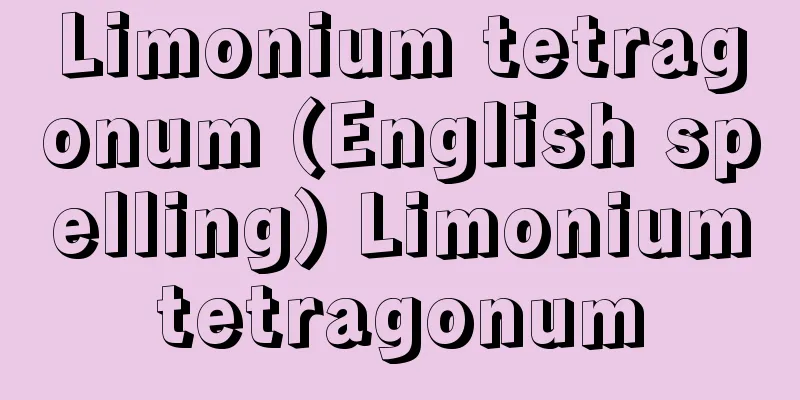Mahālwārī System

|
A taxation system implemented by the British colonial government in the 19th century in Uttar Pradesh, North-Western India, and Punjab. It is also called the Gramawāri system. Mahar means "plot." This system did not involve a contract for the collection of land tax with individual landowners, as in the Raiyatwari system, or a contract with large landowners or land auctions, as in the Zamindari system, but rather imposed land tax on multiple plots or entire villages. Source: Heibonsha World Encyclopedia, 2nd Edition Information |
|
19世紀にイギリス植民地政府によって,インドのウッタル・プラデーシュ,北西州,パンジャーブなどで実施された徴税制度。グラマワーリーGramawārī制度とも呼ばれる。マハールとは〈区画〉の意。ライーヤトワーリー制度のように,個別の土地所有者と地税徴収契約を結んだり,あるいはザミーンダーリー制度のように大地主との契約,土地の競売といった内容ではなく,複数の〈区画〉または村落全体に対して地税を課する制度である。
出典 株式会社平凡社世界大百科事典 第2版について 情報 |
>>: Maharashtra [State] (English spelling)
Recommend
Vocational school - jusanjo
〘noun〙 A facility that teaches necessary skills to...
Democrazia Cristiana (English spelling) Democrazia Cristiana
...This trend appeared in the third stage of Cath...
Liberal Arts - Kyoyoshugi
...Compared to the Meiji concept of "self-cu...
Hora Shrine
The imperial capital was located in Shiga County, ...
Yukitada Watarai
He was a shrine official at Toyouke Daijingu (the...
Ischnura asiatica (English spelling) Ischnura asiatica
…The yellow dragonfly Ceriagrion melanurum (illus...
Pliska
...The country's name "Bulgaria" co...
Facsimile - facsimile (English spelling)
A communication method or device that converts ch...
Peugeot [company] - Peugeot
The second largest automobile manufacturer in Fran...
Sanno Shinto - Sanno Shinto
Sanno refers to Hiyoshi Taisha Shrine in Omi. The ...
Class 1 plywood
...Phenolic resin adhesives are mainly used. (2) ...
The Prison of the Ox - Itsuchi no Goku
...A large outside domain with its headquarters i...
Oiransou - Oiransou
→ Phlox Source : Heibonsha Encyclopedia About MyPe...
Parent element - Oyagenso
… T = log e 2/λ ≒ 0.693/λ is called the half-life...
Pityriasis simplex faciei (pityriasis simplex faciei)
It is commonly called 'Take'. A condition ...









